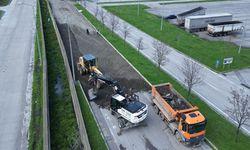Life on the highways presents unique challenges. Long hours, constant travel, and time away from family can wear anyone down. It’s crucial to create a space where both job responsibilities and personal well-being coexist. Achieving this synergy enhances not only performance but also overall satisfaction.
Many truck operators struggle with feeling disconnected from their routines. Days can blend into nights, making it hard to prioritize personal needs. Moreover, finding time for leisure and companionship seems nearly impossible. Yet, it’s not just about enduring the grind; it’s about embracing the journey.
By adopting effective strategies, individuals can transform their experience behind the wheel into something enriching and fulfilling. Short breaks, engaging with loved ones, and even mindful self-reflection can work wonders. It’s all about carving out moments of joy amidst the demanding schedule. Therefore, recognizing the importance of self-care, embracing downtime, and forging connections far and wide can lead to a more rewarding lifestyle on the highways.
Essential Tips for Truckers: Maintaining Work-Life Balance

Finding equilibrium between professional and personal life is crucial for drivers on long hauls. It’s not just about hours behind the wheel; your overall well-being matters too. When the rig becomes your second home, keeping a sense of normalcy is essential. Striking a harmonious chord can enhance both physical and mental health. Fruits, vegetables, and hydration can work wonders.
Plan breaks along your route. It’s easy to let fatigue take hold. Allocate time for activities that recharge your spirit. Whether it’s reading a book, exercising, or simply enjoying a podcast, those moments are invaluable. Regular connections with family and friends help maintain those vital relationships, even while distances grow.
Personal organization can significantly impact your quality of life. Utilize apps to track your schedules, manage appointments, and streamline your tasks. Consider cooking meals in advance to make healthier choices accessible. Create a comfortable sleeping environment in your cab – the right bedding and temperature can lead to restorative rest. Remember, rest isn’t a luxury; it’s a necessity.
Asking for support when needed is not a sign of weakness. Building a network with other drivers can provide emotional support and practical advice. Engaging with others who understand your challenges can be uplifting. Make time for hobbies that interest you outside of work, ensuring that downtime remains enjoyable and fulfilling.
Ultimately, committing to a structured routine fosters a sense of control. Balancing responsibilities while allowing for personal time requires effort but pays off immensely. Prioritizing both aspects not only enriches your life but also enhances your performance on the job. This investment in yourself can create a fulfilling and sustainable lifestyle on the highway.
Creating a Healthy Daily Routine

Establishing a solid daily structure can significantly improve life on the job. A consistent routine brings clarity and reduces stress. It helps in organizing tasks efficiently, leading to better focus. Small habits can create powerful changes over time.
Start your day with a healthy breakfast. Fuel your body with nutritious foods. Schedule regular breaks during driving to stretch and relax. Staying active is crucial.
Incorporate short exercise sessions when parked. These moments can boost energy levels and improve circulation. Listening to music or podcasts while driving can also lighten the mood, enhancing concentration.
Furthermore, taking time at the end of the day to unwind is important. It could be reading, meditating, or catching up with friends and family. The key is to disconnect from work for a while, allowing your mind to recharge. Daily habits, such as keeping a journal of experiences and feelings, can greatly contribute to mental well-being as well.
Lastly, aim for a consistent sleep schedule, ensuring you get enough rest each night. Quality sleep will enhance alertness and performance. Balancing work duties with personal care creates a harmonious atmosphere.
Establishing Regular Sleep Patterns
Getting sufficient rest is paramount for overall wellbeing. Consistency plays a crucial role in achieving restorative slumber. Setting a schedule helps regulate your body’s clock. Notice how feeling rested enhances focus and alertness. An irregular sleep pattern can lead to fatigue and decreased performance.
Gradually, consistency will lead to better quality of rest. Aim to go to bed and wake up at similar times. This practice helps your body adapt over time. By prioritizing sleep, you’ll improve your daily performance. For those who drive long hours, this can be transformative.
Understanding the importance of quality rest is vital. Aim for 7 to 9 hours of sleep to function optimally. Consider creating a calming routine before bed. This can include reading or listening to soothing music. Avoiding caffeine and heavy meals before sleep is also beneficial.
| Sleep Tips | Description |
|---|---|
| Set a Schedule | Going to sleep and waking up at the same time. |
| Create a Relaxing Routine | Engaging in calming activities before bedtime. |
| Avoid Stimulants | Refraining from caffeine and heavy meals at night. |
Incorporating these practices into your daily life may lead to better sleep quality. When your body knows what to expect, you’ll fall asleep faster. Furthermore, adequate rest supports mental clarity and emotional stability. Remember that poor sleep can significantly impact both safety and productivity on trips.
Incorporating Exercise into Your Day
Finding moments to be active while on the journey is vital. A few simple strategies can greatly enhance physical well-being. It’s all about making exercise a seamless part of your routine. The benefits are far-reaching: improved mood, better focus, and enhanced overall health. Regular movement doesn’t require a gym; creativity is key.
- Take short walks during breaks.
- Utilize truck stops with fitness areas.
- Engage in quick workout routines with bodyweight exercises.
- Incorporate stretching sessions to ease muscle tension.
Even a few minutes of activity can rejuvenate your energy levels throughout the day, allowing you to return to your tasks with a fresher perspective and increased productivity. Consider investing in portable fitness equipment, such as resistance bands or dumbbells, which can easily fit into your truck’s storage space.
- Set reminders to move every hour.
- Explore online resources for quick home workouts.
- Buddy up with a fellow driver to motivate each other.
- Join a local gym and schedule training sessions on rest days.
Exercise doesn’t have to feel like a chore; instead, it can become an enjoyable part of your daily experience, ultimately transforming those lengthy hours on the road into a healthier lifestyle choice while fostering a sense of achievement and well-being. Variety is essential–try different activities to keep things interesting! Whether it’s yoga, jogging, or simple stretches, keeping your body active is crucial.
Healthy Eating Choices on the Road
Navigating meal options while traveling can be challenging, yet it’s crucial for maintaining energy and well-being. When you’re on the go, fast food often seems like the easiest choice. However, with a little planning, healthier alternatives can be just as accessible. Being mindful about what you consume influences overall health significantly. As a result, making informed decisions can enhance both physical and mental performance.
Start by preparing simple snacks before hitting the highway. Fresh fruits, nuts, and granola bars are excellent portable options. Keep hydrated by carrying a reusable water bottle; it’s an easy way to stay refreshed. Incorporating veggies into your routine is also beneficial, as they provide essential nutrients without unnecessary calories. Each of these small adjustments can lead to noticeable changes.
When it comes to meal shopping, seek out grocery stores instead of convenience stores. This way, you’ll find a wider selection of wholesome foods. Look for pre-packaged salads, whole grain wraps, or lean protein options. Investing a few minutes in choosing quality ingredients pays off immensely in both energy levels and mood. Furthermore, cooking in a truck stop or at designated rest areas allows for more personalized meal preparation, which can be tailored to your preferences and dietary needs.
Managing Time for Breaks and Relaxation
Taking a moment to breathe is crucial during long hauls. The road can be unforgiving, and fatigue builds up quickly. Incorporating regular pauses into your schedule can greatly affect your performance. Adequate rest can rejuvenate the mind and body.
Establishing a routine is beneficial. Allocate specific times for breaks. Listen to your body; it will signal when you need a break. Small intervals can significantly enhance overall productivity.
- Plan rest stops in advance.
- Use breaks to stretch and hydrate.
- Engage in light exercise to relieve tension.
- Enjoy a nutritious snack to keep energy levels stable.
- Disconnect from work-related tasks; focus on your wellbeing.
In addition to these simple practices, consider creating a personal break schedule that allows flexibility while ensuring you disconnect mentally from driving tasks, enabling a stronger focus on your physical and emotional health, which leads to enhanced alertness on the road and improved quality of life overall.
Finding moments to unwind doesn’t have to be challenging. Even brief episodes of relaxation can improve your overall mood and work efficiency. Make use of downtime wisely. Engage in activities that you enjoy or help you to recharge. Reading, listening to music, or simply gazing at nature can do wonders.
Improving Mental Well-Being
Staying mentally sharp is crucial when spending extended periods away from home. The journey can sometimes feel isolating. Emotions can swing dramatically without the familiar comforts of everyday life. Recognizing this is the first step toward fostering a healthier mindset.
Engagement in activities that bring happiness is vital. Simple pleasures matter. Listen to your favorite music or podcasts while driving. Connecting with friends through calls can alleviate feelings of loneliness.
Moreover, practicing mindfulness techniques can significantly enhance emotional stability. Taking breaks to breathe deeply or meditate–even for a few moments–can create a noticeable shift in perspective. Investing time in self-reflection allows one to recognize thoughts and emotions, leading to a more balanced approach to challenges faced on the job.
Physical health and mental clarity are often intertwined, so regular exercise can be beneficial. A brief walk during breaks promotes blood circulation and refreshes the mind. Having a healthy diet will energize and positively influence mood.
Additionally, creating a structured routine can provide a sense of normalcy. Time management helps reduce stress levels. When every day has a clear outline, it becomes easier to maintain focus and productivity. Remember, prioritizing mental health is not only beneficial for oneself; it can also lead to better connections with clients and colleagues.
Staying Connected with Family and Friends
In a life filled with miles and hours on the highway, keeping ties strong with loved ones can be a challenge. Distance often makes it tough to share daily moments. Yet, technology bridges this gap remarkably well. Regular communication can nurture these relationships, ensuring they remain vibrant and fulfilling.
Simple gestures matter. A quick text checking in can mean the world. Video calls bring faces closer, making conversations richer and more engaging. Sharing snapshots of daily adventures keeps everyone in the loop. However, making a concerted effort to connect regularly transforms these fleeting interactions into meaningful exchanges.
Amidst the chaos of schedules and stops, planning time to chat or engage with family can create anchors in your daily routine, reducing feelings of loneliness and reinforcing that you’re never truly far away from those who care most. These connections, forged through shared experiences, help maintain a sense of belonging and continuity, making every mile traveled more worthwhile.
Utilizing Mindfulness and Stress Relief Techniques
Finding calm in the chaos can transform your experience on the journey. The demands of the job can often lead to unanticipated pressure, making it essential to discover ways to maintain mental clarity. Simple practices can provide necessary respite. Engaging in mindfulness exercises helps center your thoughts and foster a state of awareness. Even small moments of reflection can allow rest from daily stresses.
One effective method is focused breathing. You can practice it anywhere, whether at a rest stop or inside your truck. Just close your eyes, inhale deeply through your nose, and exhale slowly through your mouth. Repeat this several times. Gradually, you’ll start to feel a shift in your mood and overall outlook.
Additionally, incorporating brief moments of meditation can be beneficial. Consider dedicating a few minutes each day to simply sit in silence. Let your thoughts flow freely without judgment. This practice promotes emotional stability and enhances concentration. It creates a sense of calm that can help mitigate the pressures associated with long hours on the move.
Engaging in rhythmic activities, such as walking or light stretching, can also provide relief during breaks. Physical movement contributes not only to physical well-being but also to mental rejuvenation. It’s invigorating and offers a welcome distraction from routine tensions. Remember, taking care of your mind is just as crucial as your physical health.
Engaging in Hobbies to Reduce Stress
Finding activities that spark joy can be incredibly beneficial. Hobbies allow for a break from routine. They provide a creative outlet and a sense of achievement. Engaging in enjoyable pursuits is vital for mental well-being. It offers an escape.
For many, this could mean diving into a good book or sketching. Others may prefer playing music or discovering culinary skills. Each person has unique preferences that can enhance relaxation. When immersed in these activities, worries often fade away, and stress dissipates. In fact, dedicating time to your favorite pastime while traveling can serve as a restorative experience, allowing you to recharge and regain focus.
Participating in a hobby can also unite individuals. Joining online communities or local clubs fosters connections with like-minded people. This sense of belonging plays a crucial role in emotional health. It’s about sharing experiences and learning from one another. Creating bonds can be as uplifting as the activities themselves.
Moreover, hobbies can enhance productivity and creativity. While engaged in something enjoyable, your mind can wander and generate fresh ideas. This mental stimulation can translate into improved performance in work-related tasks. Balancing relaxation with productivity is key to thriving on and off the job.
Video:
The truth about balancing family life and truck driving! #TruckLife #FamilyFirst
The truth about balancing family life and truck driving! #TruckLife #FamilyFirst by Truck Thriver 19 views 6 months ago 56 seconds
Q&A:
What are some effective strategies for truckers to maintain a work-life balance while on the road?
Truckers can adopt several strategies to maintain a healthy work-life balance. First, setting a realistic schedule is crucial; this includes planning routes and breaks effectively to ensure sufficient rest. Second, utilizing technology such as calendar apps can help in keeping track of personal commitments and appointments. Third, making use of available downtime for personal activities—like reading, exercising, or even video calling family—can bridge the gap between work and home life. Lastly, finding a supportive community of fellow truckers can provide emotional support and shared tips for balancing responsibilities.
How important is regular communication with family for truckers who spend long periods on the road?
Regular communication with family is vital for truckers, as it helps maintain emotional connections and provides a sense of stability. Phone calls, video chats, and messaging can reduce feelings of isolation and improve mental well-being. Scheduled communication times, like evening calls, can offer both the trucker and their family something to look forward to, reducing anxiety and strengthening relationships. By keeping in touch, truckers can also remain involved in family activities, making the long hours on the road feel less lonely and more connected to their home life.
Can you suggest tips for managing stress while truck driving?
Managing stress while driving is essential for truckers’ well-being. One effective method is to incorporate mindfulness techniques, such as deep breathing exercises, during breaks. Additionally, maintaining a healthy diet and staying hydrated can positively impact mood and energy levels. Creating a soothing environment in the cab—through music, audiobooks, or podcasts—can also help alleviate stress. Lastly, ensuring adequate rest is paramount; lack of sleep can exacerbate stress and decrease focus, making it crucial to prioritize rest whenever possible.
What role does physical health play in a trucker’s work-life balance, and how can truckers maintain their fitness on the road?
Physical health plays a significant role in a trucker’s work-life balance. Staying fit can improve mood, increase energy levels, and reduce the risk of chronic conditions, which can all enhance overall quality of life. To maintain fitness on the road, truckers can opt for short physical activities during breaks, such as stretching or walking. Packing healthy snacks instead of fast food and utilizing truck stops with gym facilities or walking paths can also help. Creating a routine that includes regular physical activity, even in short bursts, can lead to a healthier lifestyle and better balance while on the road.
How can truckers prepare for their routes to ensure a smoother experience that supports work-life balance?
Preparation for routes is crucial for truckers to ensure a smoother driving experience. First, they should familiarize themselves with the route, including any potential hazards or traffic patterns. Checking weather forecasts before departure can help in planning for adverse conditions. Utilizing navigation technology to receive real-time updates on road conditions and traffic can further assist in avoiding bottlenecks. Moreover, planning rest stops and meal breaks in advance can contribute to a more organized day, allowing truckers to maintain a schedule that supports both their work and personal life commitments. By being well-prepared, truckers can reduce stress and ensure a more balanced life while on the road.

















